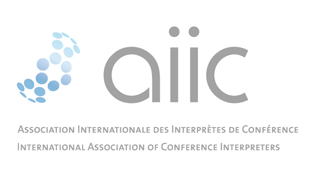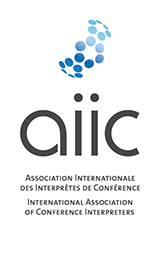- Language Selection
- Sign In
- Recruit conference interpreters
-
About AIIC
- History of AIIC
-
Inside AIIC
- Basic texts and governance
- Regions
-
Bodies, Groups, Committees and Networks
- Interpreters in Conflict Zones
- ExCO
- CACL
- Budget Committee
- Disciplinary and Disputes Committee
- Advisory Board
- AIIC Training and Professional Development
- Consultant Interpreters
- ISO Standards Project
- Legal Interpreting Committee
- Research Committee
- Sign Language Network
- Staff Interpreters
- Taskforce on Distance Interpreting
- Technical and Health Committee
- VEGA Network
- AIIC Solidarity Fund
- Research Grant
- AIIC Organigram
- Sectors
- AIIC for the profession
- Join AIIC
- Conference interpreting
- News & Events
- AIIC Library
- Contact AIIC

The University of Queensland
School of Languages and Comparative Cultural Studies
St Lucia, Australia

School Website
Is your training program Undergraduate or Postgraduate?
Postgraduate
What is the official title of the degree awarded?
Master of Arts in Japanese Interpreting and Translation
Is your programme part of an international educational network?
Is your programme sponsored financially or pedagogically?
No
Specify which institution(s) sponsor(s) your programme?
Is your postgraduate programme offered every year?
Yes
Which language combination did your programme include during the last academic year?
AB
Enter EVERY source-target language pair that your programme offers ON A REGULAR BASIS.
Are any languages compulsory? if yes, which?
no
Does your school ALSO offer additional languages which are NOT part of the regular programme as defined here, but for which students may apply?
Are applicants required to have spent time abroad?
No
Must applicants take an aptitude test?
Yes
Is the aptitude test eliminatory?
Yes
Does the aptitude test comprise oral components?
Yes
Does the aptitude test comprise written components?
Yes
Is the test assessed by trainers who are also interpreters?
Yes
What percentage of students passed the aptitude test last year?
51%-75%
Is the Programme Director/Course Leader currently a professional conference interpreter?
No
What percentage of interpreting courses is taught by conference interpreters who are AIIC members
26%-50%
Has your staff been trained in how to teach interpreting?
No
Did you provide/fund any teacher training for your staff last year?
Yes
What percentage of your teaching staff has received teacher training?
Describe the type of teacher training provided.
Do students receive any information about the short and medium-term market potential for their language combination?
Yes
If yes, when?
as a special lecture
How many SEMESTERS long is the training programme?
4
Is the curriculum posted online?
Yes
What is the curriculum's URL?
http://www.uq.edu.au/study/program_list.html?acad_prog=5207
Are courses offered in (long) consecutive?
Yes
Are courses offered in simultaneous?
Yes
How many hours does the curriculum spend on "Professional ethics and working conditions"?
15
How many hours does the curriculum spend on "Interpreting studies (research/theory)"?
10
How many hours does the curriculum spend on "Elocution, diction, voice training"?
42
Do you have a eliminatory mid-course assessment or exams?
Do you use a digital environment in the classroom?
Yes
Which digital tools do you use?
interpreter training software in-house online speech banks webstreaming & podcasts recordings (audio/visual) of live speakers
What material is used to interpret from?
Do your simultaneous booths comply with international standards, is ISO 2603 for built-in booths or ISO 4040 for mobile booths
Yes
What percentage of students pass?
What out-of-class interpreting opportunities do students have?
What was the average student-to-teacher ratio in your CI classes (interpreting classes only, not lectures)
Is there a maximum class size?
What is the maximum class size?
Are your postgraduate theses openly available to researchers?
Does the program benefit financially from assignments worked by their students?
Do students take their final exam before a panel of examiners/jury?
Yes
Does the jury include professional conference interpreters who also teach on the programme?
always
Does the jury include professional conference interpreters acting as external examiners?
Yes
Does the jury include teachers who are not professional conference interpreters?
never
Does the jury include other recruiters of conference interpreters?
never
Does the jury include representatives from international organisations and/or other recruiters of conference interpreters?
Are external jurors' comments taken into account when the jury evaluates candidate's performance?
Yes
If a candidate fails the final exams, which tests must be retaken?
only those tests which the candidate failed
How many times may a candidate retake the failed tests?
1
Does your degree/diploma list the language pairs/combinations awarded?
Must candidates pass both consecutive and simultaneous interpreting in all language pairs listed on their degree/diploma?
Does your pass mark correspond to a professional entry standard?
Does your degree/diploma include only "Conference Interpreting" in its title (excluding other subjects)
For the last academic year, how many candidates took their final exam?
6
For the last academic year, how many degrees/diplomas were awarded?
6
For the last academic year, how many degree/diplomas were awarded to candidates taking their final exams for the first time?
6
Do you follow up alumni?
How many students in total have graduated over the last 5 years?
How many of those graduates are currently working as conference interpreters?
